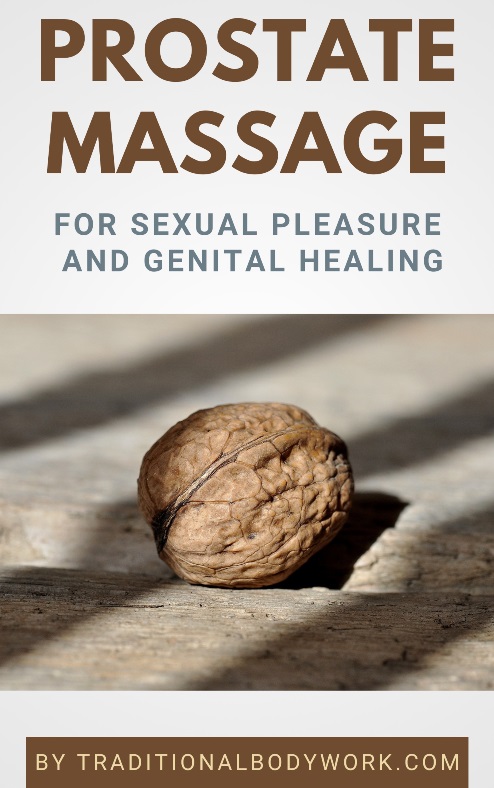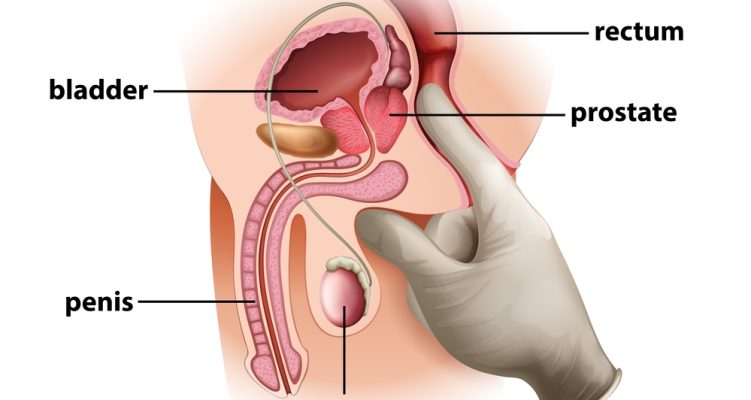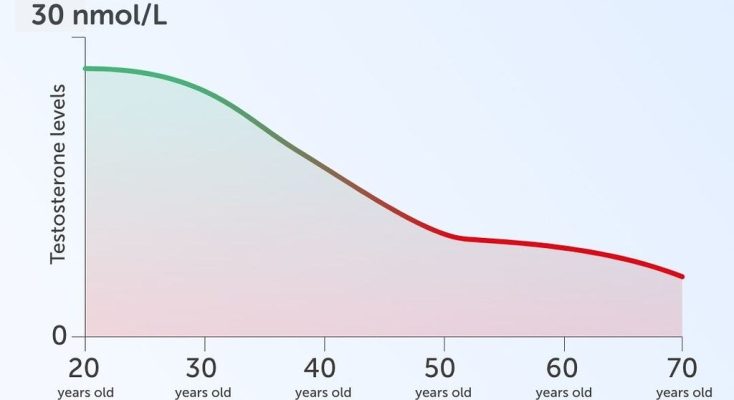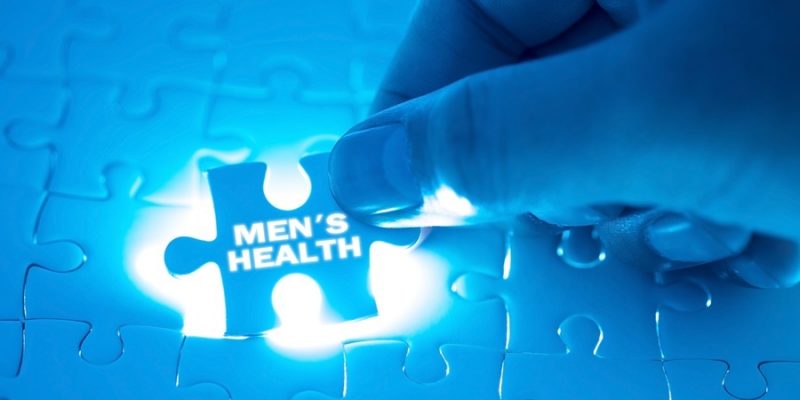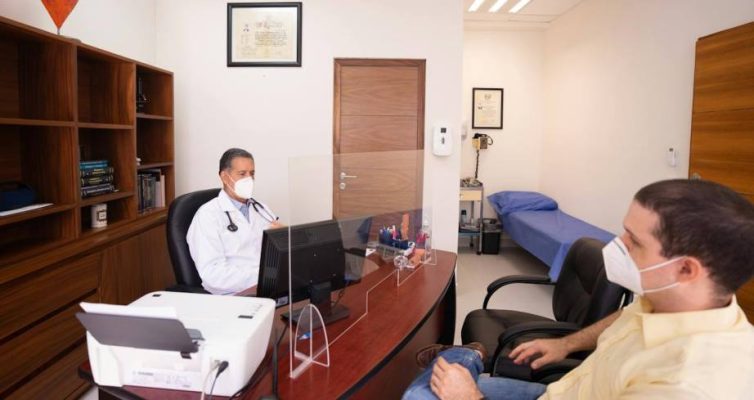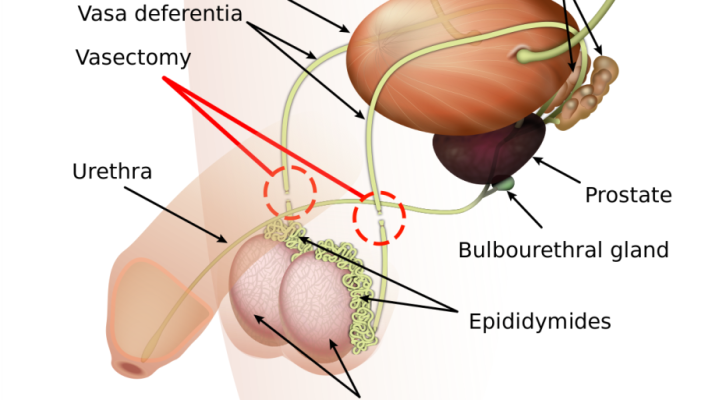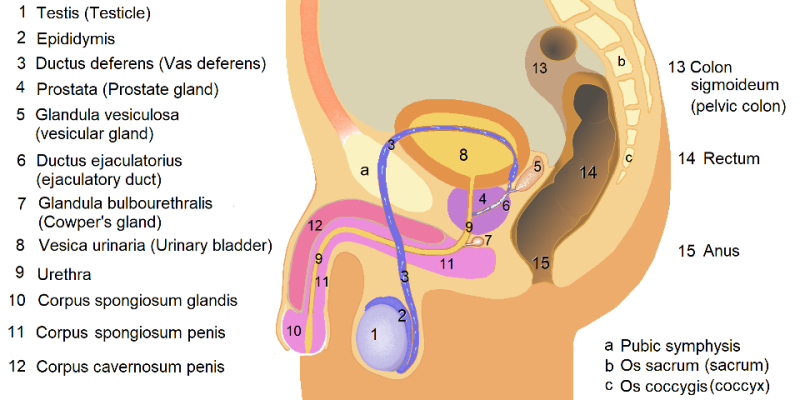
The Male Menopause, also called Andropause or Androgen Deficiency in the Ageing Male (ADAM), is typically related to a gradual reduction in the levels of testosterone with increasing age.
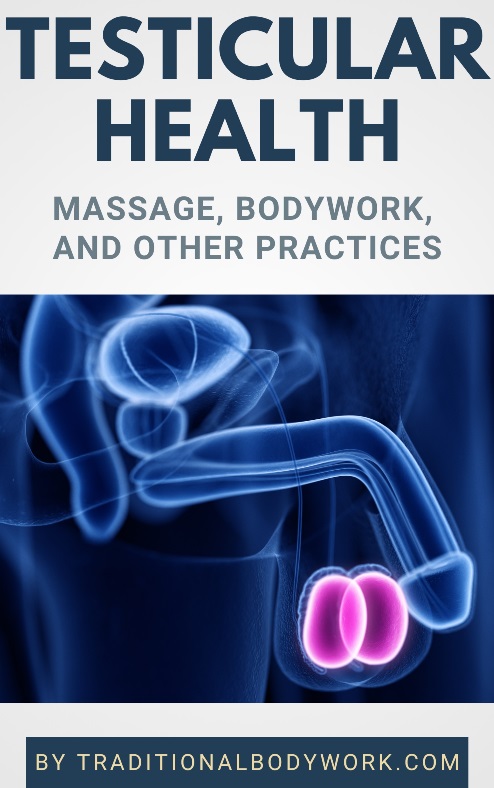
Mind that testosterone hormone level changes are a natural part of aging in men, and in contrast to the female menopause, which has a larger reproductive hormone decline in a short time, sex hormone changes in men occur gradually over a period of many years.
This gradual decline of testosterone levels (testosterone decline is on average about 1% per year after age 40) is also called late-onset hypogonadism or age-related low testosterone, but most older men still have testosterone levels that are considered to be in the normal range.
Nevertheless, some men may experience symptoms that are unpleasant or can cause health issues, such as depression, mood swings, irritability, reduced sexual desire (lower libido), decreased spontaneous erections or Erectile Dysfunction (ED), breast discomfort or swelling, loss of muscle mass, lack of enthusiasm or energy, infertility, height loss, low bone mineral density, hot flushes or sweating, difficulty sleeping (insomnia), increased tiredness, abdominal weight gain, loss of body hair, decreased concentration ability, and short-term memory.
It’s important to realize that many of the symptoms mentioned above can also be caused by other factors instead of a decline in testosterone levels. These factors are notably lifestyle or psychological issues, such as stress, anxiety, smoking, heart problems, work or relationship problems, poor diet and nutrition, midlife crisis, financial problems, lack of sleep, lack of exercise, excessive use of alcohol, or low self-esteem, to name some possible other causes.
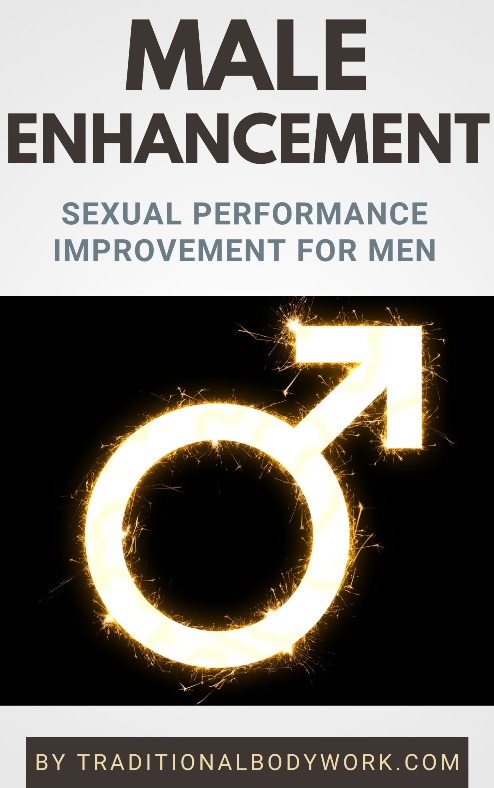
Taken this into account, men will always need to perform testosterone level tests with an appropriate healthcare provider to see if that’s really the cause of symptoms, that is, to clarify if testosterone levels are below average for a certain man’s age.
If lower than normal testosterone levels are the root cause of symptoms, men may be advised to engage in Hormone Replacement Therapy i.e. Testosterone Replacement Therapy (TRT). Nevertheless, it’s important to notice that TRT may have a range of unwanted side effects, and it’s advised to look well into those before engaging in TRT.
At any rate, it’s perhaps better to first look into alternative options to boost testosterone levels, such as regular physical exercise, weightlifting, Testicles Massage, eating plenty of proteins, healthy fats and carbs, weight loss, avoiding stress and high cortisol levels, Semen Retention practices, increasing Vitamin D intake, moderation in alcohol use, plenty of rest and sleep, taking supplements (such as Zinc, Vitamin D, Magnesium), and eating food with high levels of antioxidants.


